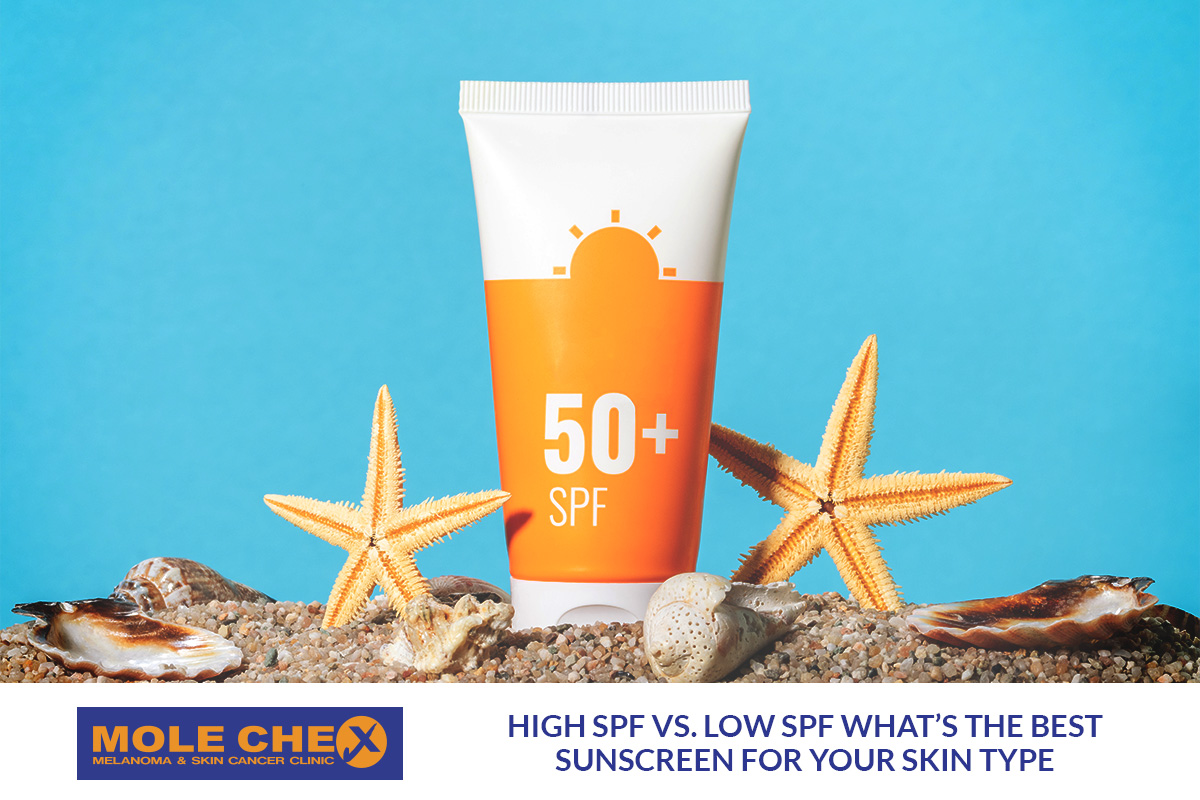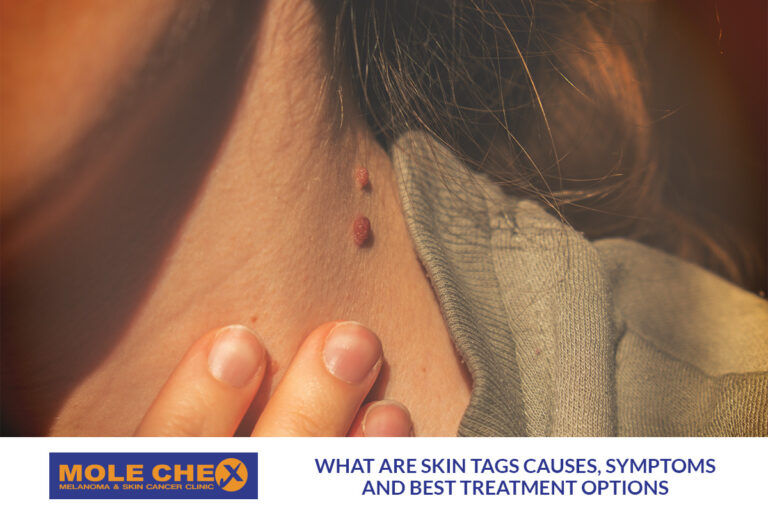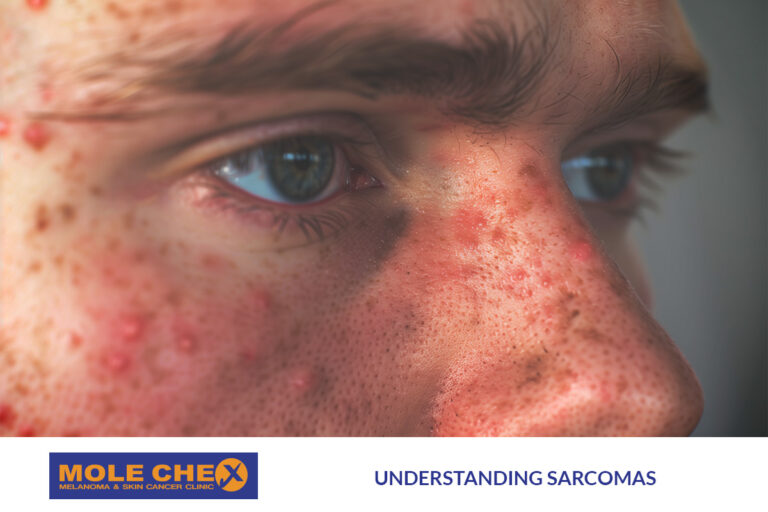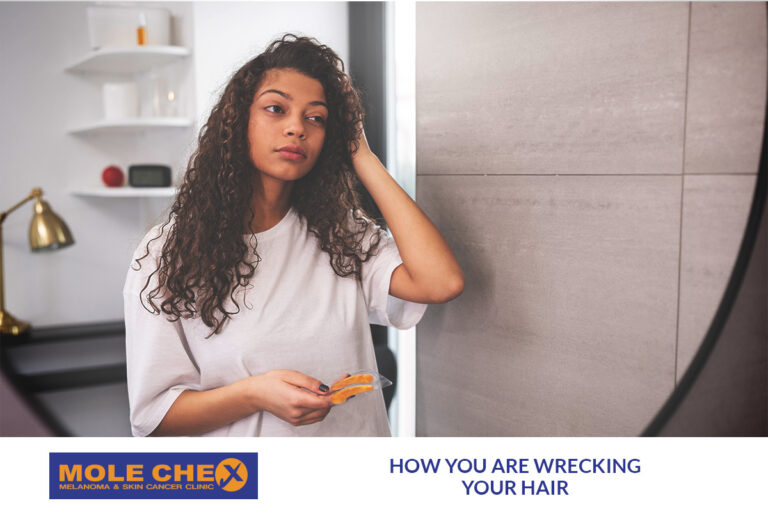High SPF vs. Low SPF: What’s the Best Sunscreen for Your Skin Type?

Australia’s beautiful sunny climate makes it a fantastic place to enjoy outdoor activities, but with the sunshine, comes a higher risk of skin damage, especially in Brisbane and other sun-drenched parts of Queensland. Whether you are heading to the beach, taking a walk, or just running errands, sunscreen is your best defence against the sun’s harmful UV rays.
However, a common question is: Does higher SPF mean better protection? And how do you pick the right sunscreen for your skin type? Let’s break it down and find the best sunscreen solution for your skin.
What is SPF and How Does It Work?
SPF, or Sun Protection Factor, is a measure of how well a sunscreen protects your skin from UVB rays—the type of radiation that causes sunburn and contributes to skin cancer. For example, an SPF 30 sunscreen blocks approximately 97% of UVB rays, while SPF 50 blocks about 98%.
It is important to note that no sunscreen can block 100% of UV rays, and higher SPFs only offer slightly better protection than lower ones. SPF also does not measure protection from UVA rays, which are responsible for premature skin ageing. This is why you should look for broad-spectrum sunscreens that shield you from both UVA and UVB rays.
Does a Higher SPF Mean Better Protection?
It is easy to assume that a higher SPF offers exponentially more protection, but this is not entirely true. As mentioned, SPF 30 blocks 97% of UVB rays, while SPF 50 blocks 98%, and SPF 100 blocks 99%. The difference is minimal, and higher SPFs often give people a false sense of security. This can lead to neglecting important factors like reapplication and using sufficient amounts.
What’s most important is applying sunscreen correctly and reapplying every two hours, especially after swimming, sweating, or towel drying. For daily use, an SPF 30 sunscreen is generally enough, but if you have very fair skin, spend a lot of time outdoors, or live in areas with intense sun exposure (like Brisbane), you might prefer using SPF 50 for extra peace of mind.
Choosing the Best Sunscreen for Your Skin Type
Selecting the right sunscreen goes beyond SPF—your skin type matters too. Here’s a guide to help you find the best sunscreen for your specific needs.
- Oily or Acne-Prone Skin
People with oily or acne-prone skin often worry about sunscreen clogging their pores or making their skin greasy. If this sounds like you, opt for an oil-free, non-comedogenic sunscreen that would not block pores. Gel-based or matte-finish sunscreens are also great for controlling shine. Look for ingredients like zinc oxide or titanium dioxide, which offer broad-spectrum protection without irritating the skin. - Dry Skin
If your skin is dry, look for a sunscreen that has added moisturising ingredients like hyaluronic acid, glycerine, or ceramides. Cream-based sunscreens or those with a hydrating finish can help lock in moisture while protecting your skin. Avoid alcohol-based formulations, which can dry out your skin further. - Sensitive Skin
Sensitive skin can react to fragrances, dyes, and certain chemicals in sunscreen. Mineral sunscreens containing zinc oxide and titanium dioxide are typically gentler on the skin and less likely to cause irritation. These ingredients sit on top of the skin rather than absorbing into it, making them ideal for people with skin conditions like eczema or rosacea. - Combination Skin
If you have combination skin, where some areas are dry and others are oily, you will need a balanced sunscreen. A lightweight, gel-based sunscreen can keep oily zones matte without drying out the skin. Look for formulations that are labelled as non-greasy but still moisturising. - Aging or Mature Skin
For aging or mature skin, protecting against both UVA and UVB rays is essential to prevent wrinkles, fine lines, and sunspots. Sunscreens with added antioxidants, like vitamins C and E, can provide an extra layer of defence against free radicals, which contribute to premature ageing. Opt for a cream-based sunscreen that is nourishing and helps improve skin elasticity.
Additional Sunscreen Tips for Maximum Protection
No matter what SPF or formulation you choose, how you apply sunscreen can make a huge difference in its effectiveness. Follow these tips to ensure you are getting the most protection:
- Apply enough sunscreen: Most people use too little. You need about a teaspoon for your face and a shot glass amount for your entire body.
- Reapply every two hours: Sunscreen wears off, especially if you are swimming or sweating. Be sure to reapply regularly to maintain protection.
- Do not forget those tricky spots: Areas like the ears, back of the neck, and tops of feet are often overlooked but can burn just as easily.
- Use sunscreen daily: Even on cloudy days or when you are indoors, UV rays can penetrate through windows and still damage your skin.
- Wear sun-protective clothing: Alongside sunscreen, wear a wide-brimmed hat, sunglasses, and clothing with UPF (Ultraviolet Protection Factor) to provide additional protection.
Conclusion: Choose the Right Sunscreen for You
While high SPF sunscreens offer slightly more protection, the key to safeguarding your skin from sun damage is proper application and choosing the right sunscreen for your skin type. Whether you have oily, dry, or sensitive skin, there’s a sunscreen option that will work for you. Remember, broad-spectrum sunscreens are your best bet for covering both UVA and UVB rays, and regular reapplication is critical, no matter what SPF you use.
Stay sun-safe, Brisbane! Whether you are hitting the beach or just running errands, make sunscreen part of your daily routine to keep your skin healthy and radiant year-round.
By investing in proper sun protection, you are not only preventing sunburn but also lowering your risk of skin cancer and keeping your skin youthful. It is a small step that can make a huge difference in your skin’s long-term health.
Learn more by reading other articles :



